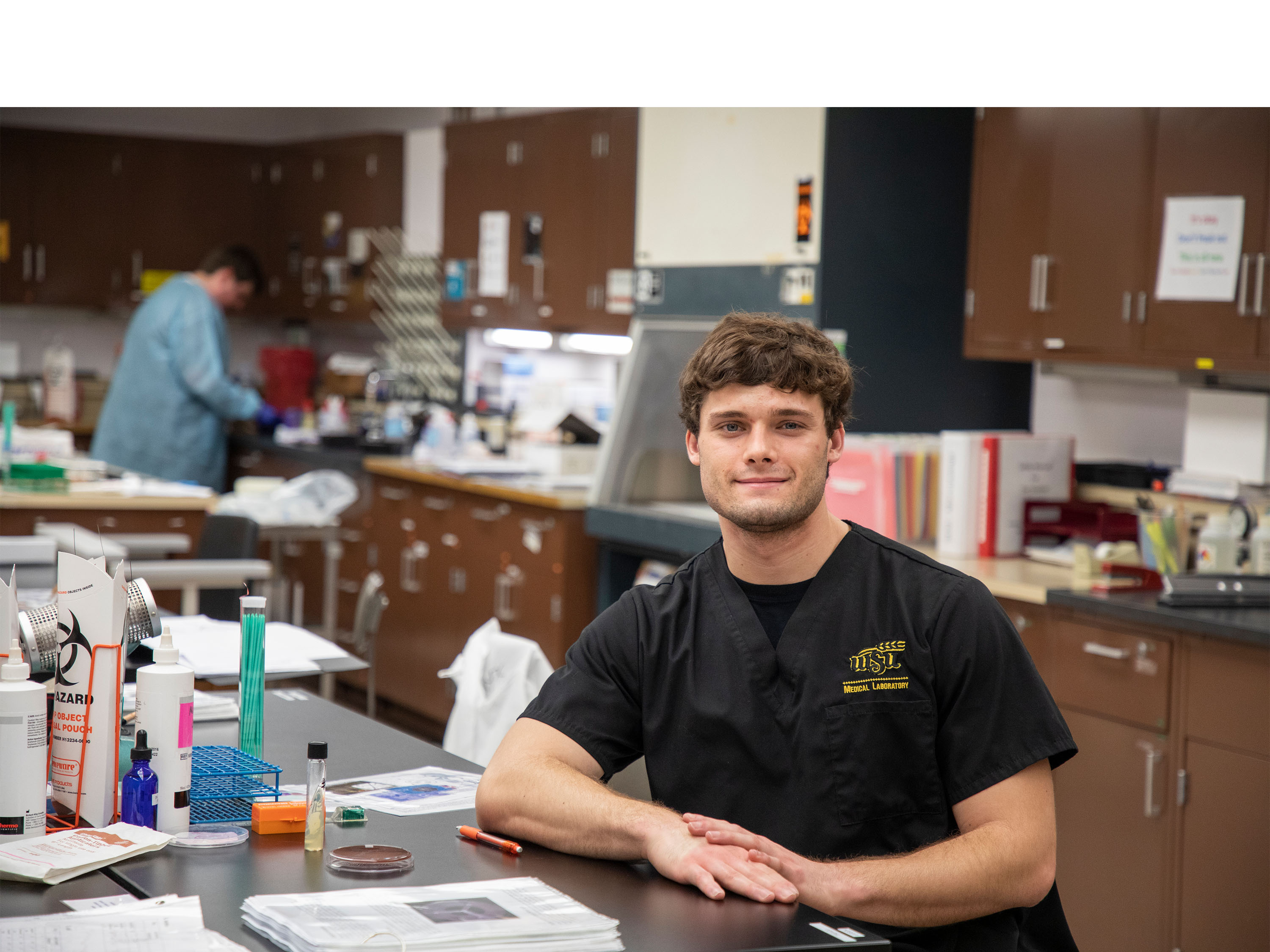The majority of Medical Laboratory Scientists (also known as Medical Technologists or Clinical Laboratory Scientists) are employed by hospitals, clinics, and reference laboratories. However, many laboratory scientists also work in specialty labs such as toxicology, transplant services, reproductive medicine, infectious disease, genetics, veterinary medicine, research, pharmaceutical, and forensics. Medical Laboratory Scientists are also employed in the areas of infection prevention and control, environmental health and safety, instrument and product development, including technical service and sales for these companies, software development, quality control and assurance in various industries, and as laboratory consultants.
The salary and benefits of a medical laboratory scientist in health care fluctuate according to regions and the number of medical/clinical laboratory scientists and programs in the area.
According to U.S. Department of Labor, Bureau of Labor Statistics a career in Medical Laboratory Sciences has a 5% increase in job growth expectation through 2032. Currently, median starting wage for a Medical Laboratory Scientist averages $29.22/hr ($60,780/yr).
At career entry, the Medical Laboratory Scientist will be proficient in performing clinical laboratory tests in areas such as hematology, clinical chemistry, immunohematology, microbiology, serology/immunology, coagulation, molecular and other emerging diagnostics, and will play a role in the development and evaluation of test systems and interpretive algorithms.
Wichita State University Department of Medical Laboratory Sciences Job Listserv
Medical facilities may contact the Medical Laboratory Sciences Department to announce job openings at their facilities. The WSU MLS department posts these announcements as a service to the medical community and our graduates. The facility may complete the job announcement form or send an email mls@wichita.edu to the department with the job description. Subscribe by email to Job Listserv.
Professional Organizations and Job Search Databases
There are a number of online resources available to assist in the search for employment after graduation. Below is a list of useful websites to get started. This list also provides students information about groups and organizations related to the physical therapy practice, community and profession.
American Society for Clinical Pathology | Find Jobs
The American Society for Clinical Pathology (ASCP) is the world’s largest professional membership organization for pathologists and laboratory professionals. The society advocates for laboratory professions by increasing awareness of the profession and giving recognition to its members.
American Society for Clinical Laboratory Sciences | Find Jobs
The American Society for Clinical Laboratory Science advocates for quality laboratory service as essential to quality health care. The society promotes practices which support the development of competent, credentialed, laboratory professionals.
American Microbiology Society | Find Jobs
The mission of the American Society for Microbiology is to advance the microbiological sciences as a vehicle for understanding life processes and to apply and communicate this knowledge for the improvement of health and environmental and economic well-being worldwide.
American Association of Clinical Chemistry | Find Jobs
AACC is an international scientific/medical society of clinical laboratory professionals, physicians, research scientists and other individuals involved with clinical chemistry and related disciplines.
American Association of Blood Banks | Find Jobs
AABB advances the practice and standards of transfusion medicine and cellular therapies to optimize patient and donor care and safety.
American Society of Hematology | Find Jobs
The mission of the American Society of Hematology is to further the understanding, diagnosis, treatment, and prevention of disorders affecting the blood, bone marrow, and the immunologic, hemostatic and vascular systems, by promoting research, clinical care, education, training, and advocacy in hematology.


